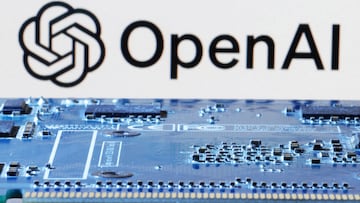TECHNOLOGY
Can I get access to OpenAI’s revolutionary new voice engine?
Advances in synthetic speech technology have gone further than we’ve seen before, but questions remain over how it can be misused.

OpenAI, the trailblazing company known for pushing the boundaries of artificial intelligence, has once again captured the spotlight with its latest innovation: Voice Engine. This groundbreaking technology promises to revolutionise the way we interact with synthetic voices, offering unprecedented realism and versatility.
What is OpenAI’s Voice Engine?
Voice Engine represents a significant leap forward in the realm of AI-generated speech. With the ability to clone voices from just a 15-second audio snippet and seamlessly render text prompts in multiple languages, the potential applications of this technology are vast, far-reaching and, for some, a little concerning.
By allowing users to create personalised voices and maintain the authenticity of the original speaker’s accent, Voice Engine opens doors to a myriad of possibilities across various industries and sectors.
Who has access to OpenAI’s Voice Engine?
Amidst the excitement surrounding this new tech, one burning question persists around if access to it is easy for all. The answer, unfortunately, is no. As with most cutting-edge technology, access to Voice Engine is initially limited to select partners and collaborators. Companies including Age of Learning, HeyGen, Dimagi, and Livox are among the fortunate few granted access to the preview version of Voice Engine, enabling them to explore its capabilities and potential applications.
For the general public eager to harness the power of it, the path to access remains uncertain. OpenAI has not yet announced plans for widespread availability or commercial release of the technology. Instead, they continue to iterate and refine Voice Engine, gathering feedback from those trusted partners and stakeholders to ensure its responsible deployment. That’s the plan, anyway.
What risks are there for Voice Engine release?
Security concerns loom large in the realm of synthetic voice technology, with the US presidential elections later this year, among several others, a major worry. OpenAI has taken proactive steps to address these concerns, implementing measures to prevent misuse and unauthorised impersonation. Partners testing the preview version of Voice Engine are required to adhere to usage policies that prohibit impersonation without consent and mandate clear disclosure of AI-generated voices.
Furthermore, explicit consent from the original speaker is deemed essential, with this ‘lite’ release showing a commitment to ethical AI practices and user privacy. The idea of given a voice to those that have lost theirs is a potential life changer for many.
The company acknowledges the risks inherent in generating lifelike speech and is actively engaging with stakeholders, including international partners, media outlets, and educational institutions, to gather feedback and shape the future of Voice Engine.
So, while access to OpenAI’s revolutionary new Voice Engine may not yet be within reach for the average consumer, the strides made in AI-generated speech technology hold immense promise for the future. How we contain its misuse remains a major concern and that will have to be determined over the coming weeks and months as more parties get involved.






